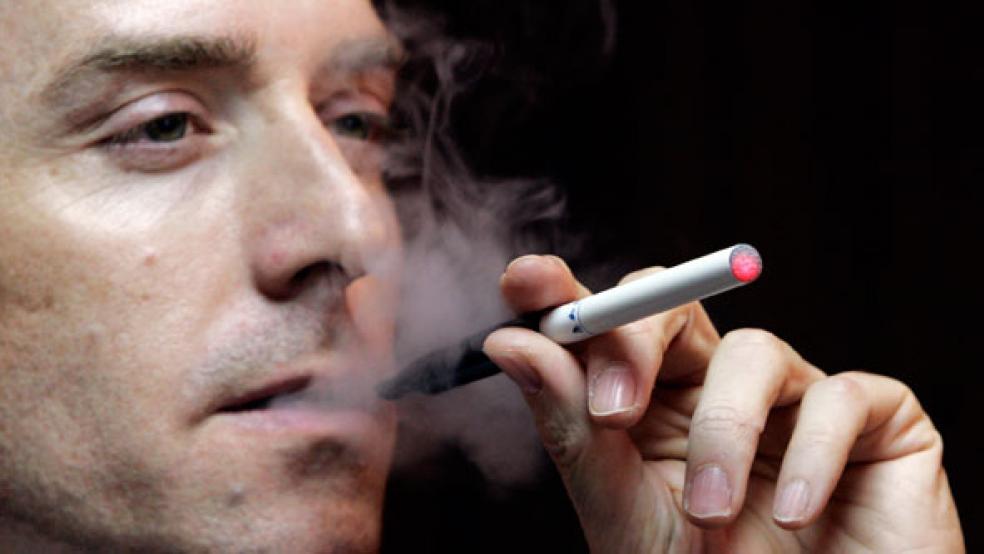MRI scans of smokers suggests there may be a connection between how the brain responds to rewards and the desire to smoke.
“We believe that our findings may help to explain why some smokers find it so difficult to quit smoking,” says Stephen J. Wilson, assistant professor of psychology at Penn State. “Namely, potential sources of reinforcement for giving up smoking—for example, the prospect of saving money or improving health—may hold less value for some individuals and, accordingly, have less impact on their behavior.”
Related: Why Smoking Is Even Worse Than We Thought
The researchers recruited 44 smokers to examine how their brains responded to monetary rewards in those expecting to smoke and in those who were not, and the subsequent willingness of the smokers to forego a cigarette in an effort to earn more money. “The striatum is part of the so-called reward system in the brain,” says Wilson. “It is the area of the brain that is important for motivation and goal-directed behavior—functions highly relevant to addiction.”
A Dollar a Minute
The participants, who were between the ages of 18 and 45, all reported that they smoked at least 10 cigarettes per day for the past 12 months. They were instructed to abstain from smoking and from using any products containing nicotine for 12 hours prior to arriving for the experiment.Each participant spent time in an fMRI scanner while playing a card-guessing game with the potential to win money. The participants were informed that they would have to wait approximately two hours, until the experiment was over, to smoke a cigarette.
Partway through the card-guessing task, half the partcipants were informed there had been a mistake, and they would be allowed to smoke during a 50-minute break that would occur in another 16 minutes. However, when the time came for the cigarette break, the participant was told that for every 5 minutes he or she did not smoke, he or she would receive $1—with the potential to earn up to $10.
Related: Study Finds Link Between Teen Pot Use and Schizophrenia
Wilson and his colleagues reported in a recent issue of Cognitive, Affective and Behavioral Neuroscience that they found smokers who could not resist the temptation to smoke also showed weaker responses in the ventral striatum when offered monetary rewards while in the fMRI.
“Our results suggest that it may be possible to identify individuals prospectively by measuring how their brains respond to rewards, an observation that has significant conceptual and clinical implications,” says Wilson. “For example, particularly ‘at-risk’ smokers could potentially be identified prior to a quit attempt and be provided with special interventions designed to increase their chances for success.”
Additional researchers from Penn State, Rutgers, and Yale University also contributed to the study. The National Institute on Drug Abuse, the Eunice Kennedy Shriver National Institute of Child Health and Human Development of the National Institutes of Health, and the Huck Institutes of the Life Sciences at Penn State supported the study.
This article originally appeared in Futurity.org.




